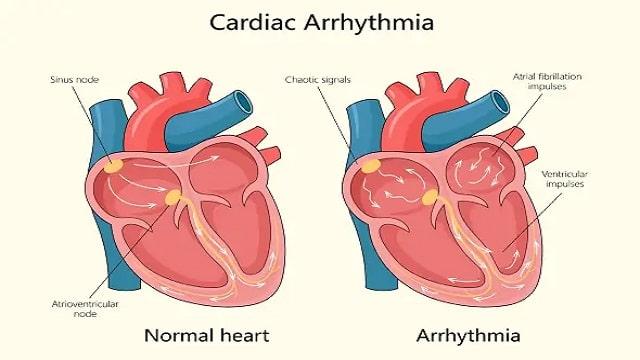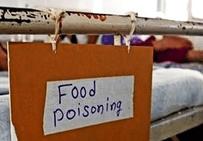
Egg Allergy Symptoms, Risk Factors & Treatment | Diseases List A-Z
Egg Allergy Egg allergy is a condition that causes an abnormal reaction from the immune system to egg protein.
In this condition, the immune system recognizes eggs as a substance that can be harmful to the body.
This then causes the immune system to push the body to release histamine.
This is what causes allergy symptoms to appear.
People with this condition can experience mild to severe symptoms.
In general, egg white is the part of the egg that most often triggers allergies than the yolk.
This allergy generally occurs in babies and will disappear before entering adolescence.
Egg Allergy Symptoms Symptoms of this condition usually appear a few moments to a few hours after the sufferer consumes eggs or foods containing eggs.
Some symptoms that appear due to this allergy are: Red rash on the skin.
Itchy.
Stuffy or runny nose and sneezing.
Stomach cramps.
Nausea and vomiting.
Stomach ache.
Diarrhea.
Shortness of breath accompanied by wheezing.
Cough.
Chest pain.
In rare cases, allergies to these foods can cause severe, life-threatening symptoms (anaphylaxis).
Symptoms that can appear include: Rapid pulse.
Swelling in the throat.
Blood pressure drops drastically.
Dizzy.
Loss of consciousness or fainting.
Egg Allergy Risk Factors There are several risk factors that make someone more susceptible to allergies, including: 1.
Age Babies and children are more susceptible to allergies because their digestive tracts are not yet mature and perfect.
The body’s organs are also still unable to digest certain types of food properly, resulting in side effects on the body.
2.
Family history Egg allergies can be hereditary.
This means that someone can experience it if there are family members who are also allergic to the proteins contained in eggs.
Hereditary allergies occur because certain genes are inherited from parents to children.
3.
History of other allergies in the family Not only the same allergy, someone can also have a food allergy if one or both parents have other types of allergies.
For example eczema, asthma, or rhinitis.
This condition can affect the child’s genes and cause allergies to certain foods.
4.
Atopic dermatitis People with atopic dermatitis or skin inflammation are at higher risk of developing food allergies because their skin condition is already sensitive.
Just like when allergies form, atopic dermatitis also appears in childhood.
Causes of Egg Allergy Food allergies can occur because the body’s immune system reacts more strongly than it should.
In the context of foods such as eggs, the immune system identifies egg proteins as substances that are harmful to the body and not food.
As a result, the body reacts by releasing histamine into the blood and causing an allergic reaction.
Allergies can occur due to the egg white, the yolk, or both.
In children, the most common allergy is egg white allergy.
While in adults, egg yolks are more likely to cause allergies.
In breastfed infants, allergies usually occur due to the mother’s breast milk consuming eggs.
This condition is also triggered by the imperfect digestive tract of infants and children.
Egg Allergy Diagnosis You can get an egg allergy diagnosis through a complete medical examination with a doctor.
In general, allergy testing can occur in several different ways, namely blood tests, physical, and consumption.
Previously, the doctor will ask for a history of the disease and symptoms experienced by the sufferer, as well as a history of allergic diseases in both parents of the sufferer.
Then, the doctor can do one or more tests to prove allergies.
First, the doctor can perform a physical examination to see signs of allergies that appear on the sufferer’s body.
The doctor will place a small amount of egg protein on the surface of the sufferer’s skin and observe the symptoms of allergies that arise.
In addition, doctors can also give sufferers a small amount of eggs to consume so that symptoms can appear.
Of course, this test is safe because the amount of allergen consumption is very small.
The last option is to have a blood test to see the immune system’s response to eggs by measuring the amount of antibodies in the blood.
Once the patient is proven to have an allergy, the doctor will gradually advise the sufferer to eliminate eggs from their daily menu while observing the symptoms that arise.
Egg Allergy Treatment Treatment for this allergy is to not consume eggs or foods containing eggs.
Medicines from doctors aim to reduce the symptoms that arise.
Some commonly used medicines are: 1.
Antihistamine Antihistamines are a type of medication that can relieve allergy symptoms.
You can use this medication after consuming eggs and feeling the symptoms.
The purpose of its use is to avoid severe allergic reactions.
For those with severe allergies, it is best to always have this medicine on hand to avoid serious side effects.
2.
Adrenaline Not only hormones in the body, adrenaline is also an allergy reliever.
Allergy sufferers can use this drug by injecting it into the skin to treat serious allergic reactions in the form of anaphylaxis.
Sufferers with serious symptoms should go to the hospital immediately for further treatment.
Egg Allergy Prevention The best way to prevent allergies is to not consume eggs or foods and drinks that contain eggs.
Some efforts to prevent egg allergies that can be done include: Be careful about the contents of every food consumed, especially when eating out.
Ask the waiter or chef about the egg content in the menu you are going to eat.
Carefully read the labels on food packaging.
In some cases, small amounts of egg content can also trigger allergy symptoms.
For breastfeeding mothers whose babies have egg allergies, avoid consuming eggs because they can enter the breast milk that the baby will drink.
Replace eggs with other commonly used substitute ingredients for food processing.
Use a special bracelet or necklace for allergy sufferers when traveling outside the home.
Tell your child’s family or caregiver that your child has an egg allergy and explain what to do when allergy symptoms appear.
Discuss with your doctor every time your child is going to be vaccinated because some vaccines, such as influenza, measles, mumps, rubella, and yellow fever contain egg protein which can trigger allergic symptoms.
Contact This Doctor If You Have an Egg Allergy If you experience signs and symptoms of allergies such as a red rash on the skin, itching, stuffy nose or runny nose and sneezing, or stomach cramps, after eating eggs, contact a doctor immediately.
The doctor will provide consultation, advice, and treatment needed according to your condition.
.
Related Articles
health
Aquaphobia Symptoms, Risk Factors & Treatment | Diseases List A-Z
October 22, 2024

Aquaphobia is a type of specific phobia that is an irrational fear of something that does not pose much danger.
A person with aquaphobia has extreme fear or anxiety when thinking about or seeing water.
read morehealth
Arrhythmia Symptoms, Risk Factors & Treatment | Diseases List A-Z
October 22, 2024

Electrolyte imbalance in the blood.
Electrolyte levels, such as potassium, sodium, calcium, and magnesium can interfere with the heart’s electrical impulses, resulting in arrhythmias Drug use.
read morehealth
South Africa: Over 40 students hospitalised for suspected food poisoning
October 23, 2024

The information contained in this website is for general information purposes only.
The information is provided by BhaskarLive.
read more